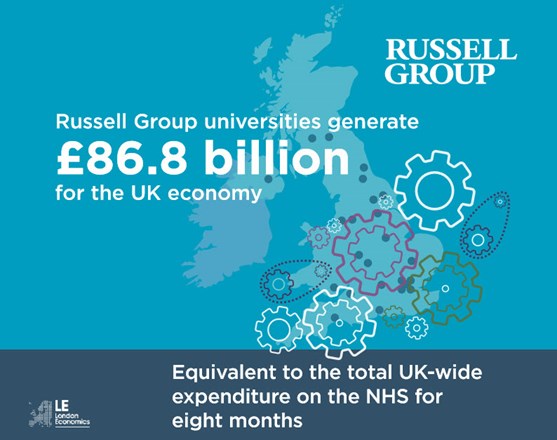Blog: why fees and funding must be fair
20 February 2018
Head of Policy Sarah Stevens looks at the priorities for the Government's review of higher education funding.
For many young people, going to university is one of the most important decisions they will ever take. Studying for a degree is an investment in their future. But it’s not just about the individual – because it also represents an investment in the country’s future as well.
And that’s why the system for funding higher education needs to be fair and affordable to students, while still meeting the needs of taxpayers and of universities.
Sustainable funding is critical to enable continued investment in new facilities and provide students with a high-quality education and experience. Finding the right balance and maintaining the benefits for students, taxpayers and universities is likely to involve making a series of difficult trade-offs.

It is right therefore that the Government is considering how the fees and funding system can be optimised, and we look forward to engaging with the review.
The intention to focus on improving public understanding of the system is welcome. Income-contingent loans support access to higher education for young people from all backgrounds as nothing is paid upfront, and the long-term cost to the individual is balanced by the significant earnings premium.
Even after deducting the full costs of studying and student loan repayments graduates from Russell Group universities, for example, can typically expect to earn an additional £177,000 during their life-times after completing a full-time undergraduate degree compared to someone whose highest qualifications are A-levels or equivalent. The salary premium is higher again for those with masters degrees and doctorates.
The value of a degree is not restricted to individual economic advantages, nor is it exclusive to students themselves. A highly skilled workforce is critical to the UK’s prosperity, and the role of learning in enhancing the collective human capacity of the population has benefits for all citizens.
Our analysis suggests that, on purely economic terms, the benefits of a Russell Group degree to the student and the taxpayer are broadly balanced. For instance, around half the £177,000 earnings premium referred to above directly benefits the individual while the other half goes to the public purse.

Being more transparent about the extent to which the state contributes to the costs of higher education (through teaching grant for higher cost subjects and by meeting the cost of writing off loans after 30 years) would also help build public awareness of the balanced contribution between students and taxpayers.
Ultimately, though, the correct balance between the public and private contribution to meeting the costs of higher education is a decision that will be taken by politicians, parliamentarians and through them, the electorate.
In reviewing the approach to higher education funding in England, we would urge the Government to ensure a number of core principles remain at the heart of the system.
Firstly, in order to facilitate social mobility and achieve the Prime Minister’s aim of building a country that works for everyone, students from all backgrounds must have access to a wide range of courses and to achieve this student numbers should remain uncapped.
Secondly, whilst the contributions expected of students and of taxpayers should remain affordable, overall funding for teaching (whether through fees or grants) should be sufficient to support high quality, research-intensive learning environments across the full range of disciplines. This will be critical in enabling the UK to foster a broad and adaptable skills and knowledge base to remain competitive.
Thirdly, funding must be predictable and enable universities to plan and make long-term strategic capital and human resource investments. This is essential if universities are to maximise their funding for the benefit of students and continue to realise efficiencies.
Higher education is a national success story for the UK. Universities are one of this country’s major assets, teaching over two million students per year, with an international reputation for quality and student satisfaction. As a nation, we should be ambitious in continuing to fund a world-class HE system for the benefit of both students and the wider economy and society.
 X
X


